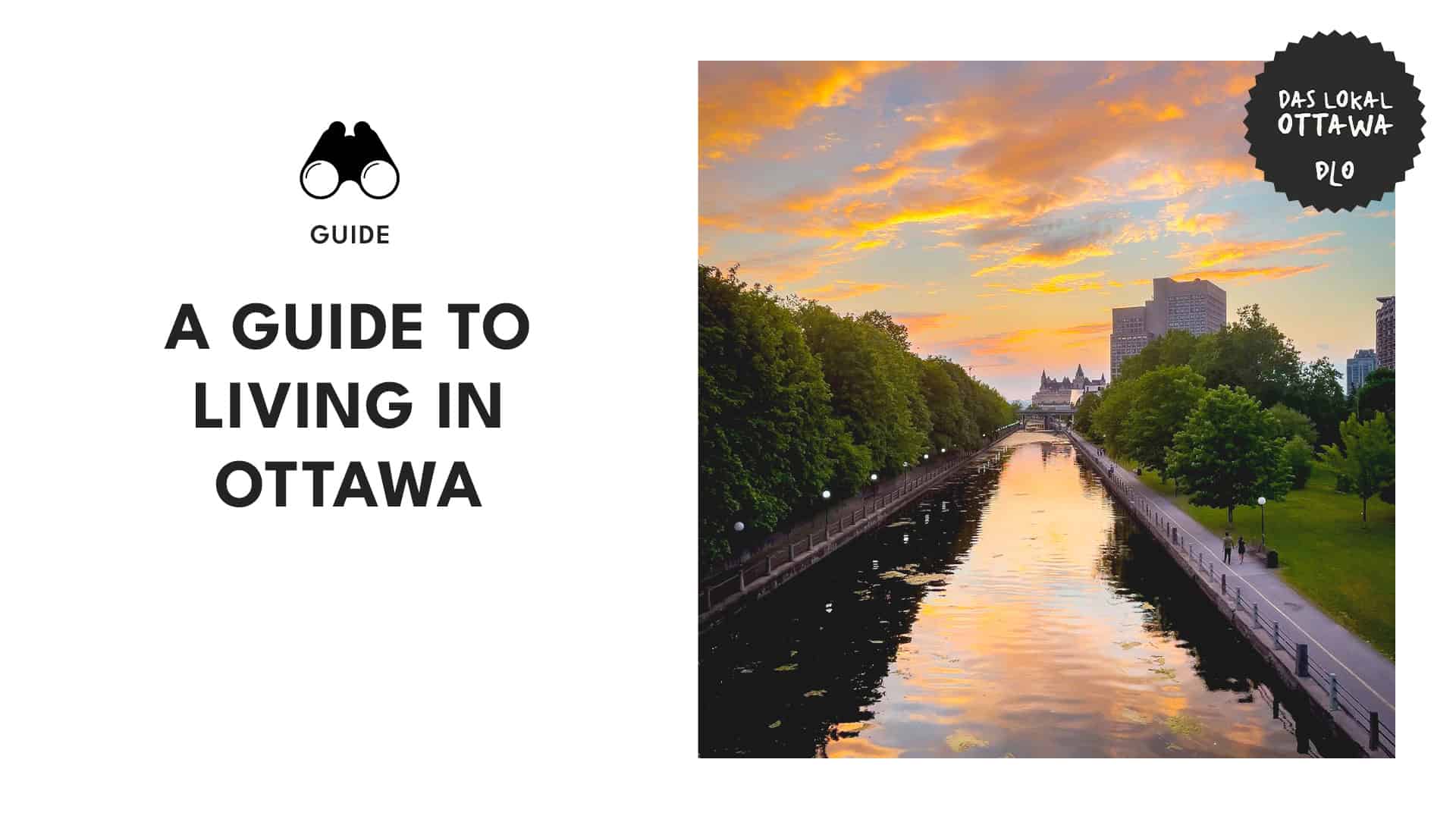Living in Canada’s capital sounds promising, but let’s be real. It’s not just about maple syrup and politeness (though there is plenty of that).
There are a plethora of things you should know, from the 613’s climate to its housing prices. But do not worry. We have your back.
If you’re thinking about living in Ottawa but unsure of the city’s ins and outs, we will provide all the answers to your essential questions.
- Where is Ottawa?
- What is the climate of Ottawa?
- What is the population of Ottawa?
- What is the language in Ottawa?
- What is the culture in Ottawa?
- What are the religions in Ottawa?
- What is the quality of life in Ottawa?
- What makes Ottawa special?
- How diverse is Ottawa?
- What is considered a good income in Ottawa?
- What are the suggested places for renters in Ottawa?
- How does Ottawa’s cost of living compare to other Canadian cities?
- What is the cost of living for students in Ottawa?
- What is the current employment situation like in Ottawa?
- What is the crime rate in Ottawa?
- What are some of the amenities in Ottawa?
- How is the healthcare system in Ottawa?
- What is the transportation system in Ottawa?
- What are the pros of living in Ottawa?
- What are the cons of living in Ottawa?
Where is Ottawa?
– From cityofottawa
Ottawa, Canada’s capital, is situated in the southern part of Ontario at the confluence of the Ottawa River and the Rideau River.
It shares its borders with Gatineau, Quebec, and serves as the core of the Ottawa–Gatineau census metropolitan area (CMA) and the National Capital Region (NCR).
What is the climate of Ottawa?
– From cityofottawa
Ottawa experiences a semi-continental climate characterized by warm, humid summers and extremely cold winters. The city’s winter weather is notably severe with snow depths exceeding 1 cm on approximately 120 days each year.
The average temperature in Ottawa is 15.6 °C (60 °F) with a minimum of 10 °C (50 °F) and a maximum of 21.3 °C (70.3 °F). During the coldest nights, temperatures typically drop to around 2 °C (35.5 °F).
What is the population of Ottawa?
From cityofottawa
During the 2021 census, Ottawa recorded a city population of 1,017,449, while Ottawa-Gatineau (CMA) reported a population of 1,488,307, reflecting an 8.5% change from the statistics observed in 2016.
What is the language in Ottawa?
– From cityofottawa
As per the 2021 census data, Ottawa-Gatineau showcases a linguistic diversity where English holds prominence for 53.4% of the population, followed by French at 30.6%, and other languages making up 21.7%
Other languages spoken in the city include Arabic being the most prevalent at 20%, followed by Mandarin at 8.1%, Spanish at 7.3%, Cantonese at 3.6%, and Italian at 3.1%, among others.
Ottawa’s linguistic diversity extends beyond these statistics with over 400 languages spoken, including Indigenous languages. Inuktitut and Cree are the most commonly used of the latter.
What is the culture in Ottawa?
– From cityofottawa
Ottawa’s cultural landscape is shaped by a myriad of influences, such as First Nations, English, Scottish, French, and Irish.
Situated within the traditional Anishinàbeg Algonquin territory, the city’s cultural identity is also deeply rooted in its Indigenous heritage.
What are the religions in Ottawa?
– From cityofottawa
The World Population Review‘s 2024 data reveals a diverse religious landscape in Ottawa with 65% of the population identifying with various Christian denominations.
Roman Catholicism leads at 38%, followed by Anglicanism (6.5%), United Church (6.2%), Christian Orthodox (2%), Presbyterianism (1.5%), Baptist (1.2%), and Pentecostal (1.1%).
Beyond Christianity, Ottawa embraces more religions, including Islam (6.7%), Hinduism (1.4%), Buddhism (1.3%), and Judaism (1.2%).
What is the quality of life in Ottawa?
– From cityofottawa
Ottawa boasts an exceptional quality of life, securing the second-highest living standards among large cities in the Americas and claiming the 14th spot globally, according to Mercer.
Ottawa is also one of the cleanest cities in Canada and the world, as per Expat. Additionally, MoneySense’s 2017 evaluation recognized Ottawa as the best community to live in across Canada.
What makes Ottawa special?
– From cityofottawa
What makes Ottawa special is its abundance of opportunities for personal and professional development with reputable employers and educational institutions fostering growth in a safe environment.
Beyond its economic prospects, Ottawa offers a unique blend of national and regional cultures. The city’s rapid development, cleanliness, and welcoming communities contribute to its appeal too.
Moreover, the city’s recreational options and landmarks cater to all interests and seasons, from national museums to renowned art galleries and impressive annual festivals.
How diverse is Ottawa?
– From cityofottawa
Ottawa is a remarkably diverse city, consisting mainly of white individuals at 74.2%. This percentage is composed of different ancestral backgrounds including Canadian, English, Irish, French, Scottish, German, and Italian.
Beyond this majority, Ottawa is home to a significant black population at 5.7%, a notable representation of Chinese (4.0%), South Asian (3.9%), Arab (3.7%), and Southeast Asian (1.6%)
The diversity also includes Filipino (1.2%), Latin American (1.2%), West Asian (0.9%), Korean (0.3%), Japanese (0.2%), and a notable Aboriginal population at 2.1%, encompassing First Nations, Metis, Inuit, and other Aboriginal identities.
What is considered a good income in Ottawa?
– From cityofottawa
You need an annual income in the range of $43,000 to $60,000 to maintain a comfortable lifestyle in Ottawa or a monthly budget of $3,583 to $5,000.
For those starting in entry-level positions, the annual income begins at $40,482, while experienced workers may earn up to $125,064 annually.
What are the suggested places for renters in Ottawa?
– From cityofottawa
The top neighborhoods (top neighborhoods ottawa) for renters in Ottawa are the following:
- Kanata
- Old Ottawa South
- Sandy Hill
- Glebe
- New Edinburgh
- Alta Vista
- Westboro
- Dow’s Lake
- Orléans
- Civic Hospital
How does Ottawa’s cost of living compare to other Canadian cities?
– From cityofottawa
According to WOWA, Ottawa’s cost of living ($4,514) positions it within a moderate range compared to other Canadian cities.
However, Ottawa is still more expensive than cities like Montreal ($3,388), Halifax ($4,150), Saskatoon ($4,120), and Edmonton ($4,395).
Ottawa is more affordable than Calgary ($4,685), Toronto ($4,813), and Vancouver ($5,119), though.
What is the cost of living for students in Ottawa?
– From cityofottawa
For students in Ottawa, living costs depend on accommodation choices with on-site options like university halls ranging from $700 to $1,500 per month, private apartments at $972 to $1,758 per month, and homestays at $129 per night.
In addition to accommodation, students need to budget for food, with an estimated cost of $65 per week. Utility bills, including electricity, water, and heating, are approximately $195 per month, while transportation costs are estimated at $125 per month.
Are there good schools and educational institutions in Ottawa?
– From glebecollegiateschoolcouncil
Yes, Ottawa boasts an array of exceptional schools spanning various sectors. In the public system, there is Colonel By Secondary School, Lisgar Collegiate Institute, Glebe Collegiate Institute, and Canterbury High School.
If you are looking for Catholic institutions, some of the most suggested ones are St. Mother Teresa High School and All Saints High School. As for private options, your best picks are Ashbury College and Elmwood School.
Ottawa’s commitment to education extends to French immersion with schools like École Secondaire Publique De La Salle and École Secondaire Catholique Franco-Cité.
What is the current employment situation like in Ottawa?
– From cityofottawa
As of February 2024, the employment situation in Ottawa reveals a modest increase in the unemployment rate, standing at 4.7%, which is a marginal 0.2% rise from the previous month.
Despite this slight uptick, the current rate is notably 5.3% below the peak recorded in July 2020 and remains below the city’s long-run average.
Furthermore, Ottawa experienced a decline of 3,900 full-time jobs, partially offset by a gain of 3,500 part-time positions, resulting in a net decrease of 400 total jobs for the month.
What are the major employment sectors in Ottawa?
– From cityofottawa
Ottawa’s major employment sectors include the Federal Government, high-tech, health care, and education.
The Federal Government provides an average annual salary of around $79,000, while the high-tech industry pays an average salary of $72,047.
In health care, salaries range from $100,000 to $200,000, and education professionals generally earn between $55,000 and $200,000 per year.
What is the crime rate in Ottawa?
– From cityofottawa
Ottawa’s crime rate is reported at 3,511 offenses per 100,000 residents.
What are some of the amenities in Ottawa?
– From cityofottawa
Ottawa offers several amenities, including full-service recreation and community centers, suburban and rural community buildings, museums, galleries, arenas, parks, sporting grounds, public swimming pools (swimming pools ottawa), and green spaces.
How is the healthcare system in Ottawa?
– From ottawahospital
The healthcare system in Ottawa is primarily managed through the province’s medical coverage, which comprehensively addresses most healthcare needs once an individual becomes a resident of Ontario.
This publicly funded model covers essential medical services, including doctor visits, hospital stays, and various treatments. Residents can also opt for private healthcare plans to address specialized treatments beyond the province’s coverage.
What is the transportation system in Ottawa?
– From cityofottawa
The main transportation system in Canada’s capital region is operated by OC Transpo, encompassing buses and Ottawa’s light rail train, the O-Train.
In addition to OC Transpo, Ottawa has taxis and ride-sharing services providing door-to-door transportation.
During warmer months, boat transport is also available, and residents and visitors can also opt for bike rentals for a bit of a workout.
What are the pros of living in Ottawa?
– From cityofottawa
The pros of living in Ottawa include the following:
- Ample employment opportunities
- Cleanliness
- Multicultural setting
- Strong sense of community
- Low crime rate
- Excellent education and healthcare
- Convenient transportation system
- Bilingual status
- Proximity to other cities
- Abundant green spaces
- A vibrant cultural scene with diverse festivals, landmarks, and events
- A large number of recreational spaces and sporting grounds
What are the cons of living in Ottawa?
– From cityofottawa
Living in Ottawa comes with its share of cons, such as the ones below:
- Limited job diversity
- Harsh winters
- Limited nightlife
- High property prices
- No subway system
- Rough road conditions
- Competitive job market
- Language requirements
- Earthquake risk
- Ongoing homelessness issue





